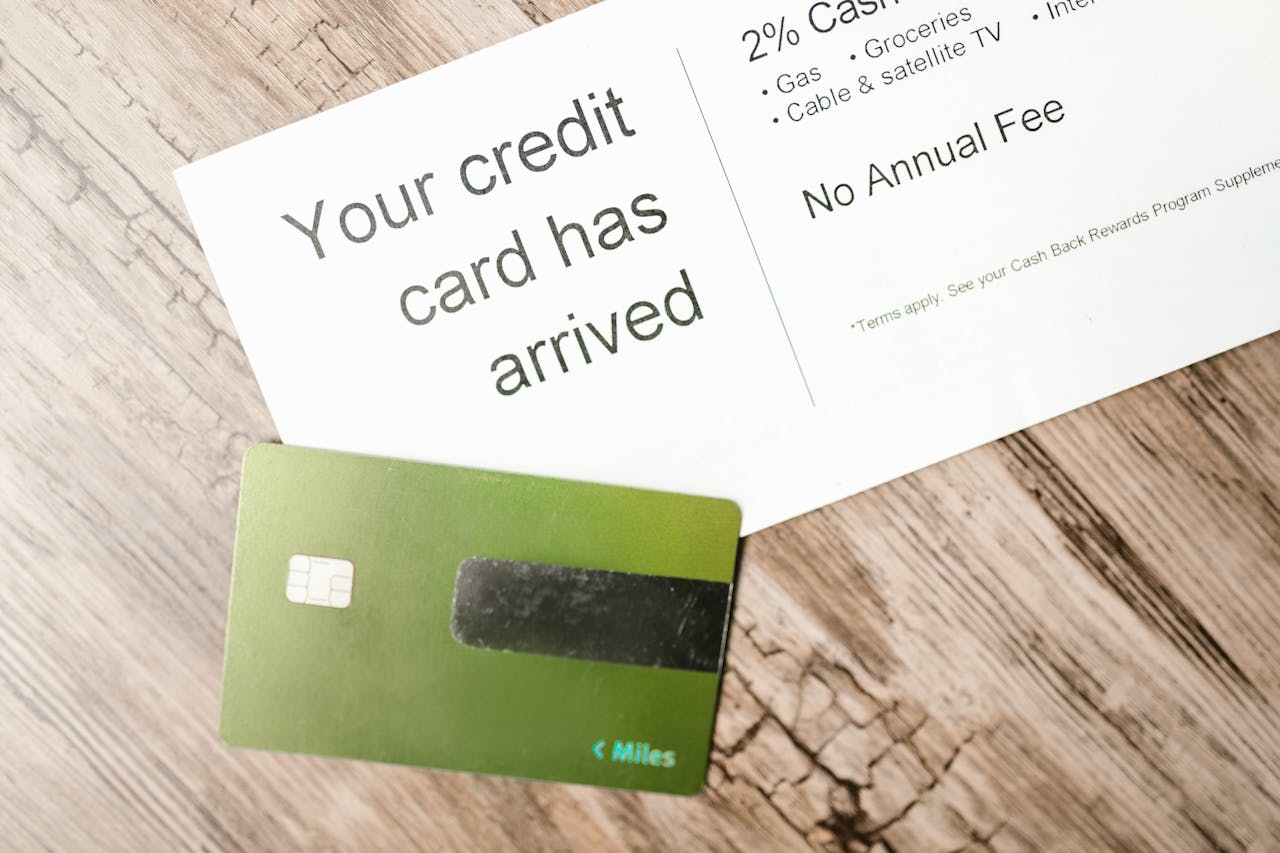Handling Credit
Our kids are growing up in the age of credit, when knowing how to manage debt is as important as being able to balance a checkbook.
Sadly, many kids may not have the skills they need to make good financial choices. Today’s college graduates carry debts that are double those of a generation ago. When you’re teaching your kids how to handle money, give them a competitive edge with a few pointers about credit management.
Teach your kids the basics about credit monitoring. Fill out a request for your credit score with their help. Explain the national credit reporting agencies and walk them through the information in your credit report.
Most teens are in the dark about credit scores. Shine a little light on the situation with a clear explanation of how these scores work. Explain how the scores will affect their ability to get a mortgage or buy a car. Be sure to mention that these scores are used by landlords, insurance companies, and even potential employers.
You set the example for how your kids will deal with debt. If you’re struggling with your own debt management issues, work with a financial advisor to resolve these problems. This process is valuable for your kids to see because you can show them how to deal with less-than-ideal credit situations – a lesson they can certainly use.
Credit card companies love college campuses. Where else can they market to crowds of kids away from home for the first time? A typical college freshman gets numerous credit card offers. Before your kids pack up for school, you need to teach them how to evaluate these offers. Explain interest rates, finance charges, late payment fees, and annual fees. The most important thing you can teach them is simple: Read the fine print.

Cover the nuts-and-bolts of managing a card. Kids can be guilty of thinking that a credit card is free money. Make sure they understand that how they use their cards today will affect them for a long, long time in their future life. Show them how the interest rate factors into payment. Also cover minimum balance payments, card safety, and repayment plans.
Once your kids begin the college years, they’ll have to face managing credit cards sooner or later. You can make a difference in your children’s future lives by teaching them to be wise consumers. Give your children the basics of good credit management today. They’ll thank you for it… eventually.
There is a way where you can monitor your child’s expenses and at the same time give your teen a responsibility lesson. The answer to this is a pre- paid credit card. With this, your teen will have the freedom of having money and spending up to a point. Unlike normal credit cards your teen cannot go over the spending limit, resulting in a lesson about budgeting.
If you are considering a pre-paid credit card, you need to know the following: You load the card with the amount that you desire giving them a limit to follow. You can then monitor your child’s expenses by watching the account’s statements online or it can be given to you by the institution. You can also reload the card whenever you want via internet or mobile. You will also find that with most credit card institutions that they guarantee you a refund if you have been subject to theft. Relatives can also transfer money into that account without the responsibility of carrying cash around.
There are other options too; these are secured and unsecured credit cards for your teens. All three of those options give you the reassurance of a limit. Now there are other important things to look at. You need to analyze your kid and determine whether he/she is really ready for a credit card. Look at a few things like: does he/she always ask for extensions on his/her projects?
This indicates that he/she won’t be able to pay the monthly payments. Also, does he/she lie to you? If your kid asking for money to buy lunch at the tuck shop and came home with a new CD? then you need to consider that maybe your teen will spend more than he/she might be telling you. The last thing you need to look at is whether your teen can budget with his/her allowance.
You are the only one that will know whether your child is ready for a credit card because if you ask any child/teen if they want a credit card and their immediate answer will be a guaranteed YES! More than likely your kid will be more than willing to have a card. It is your responsibility however to make sure you teach them how to use it wisely.
Why is important to build your credit early? Building a good credit score is impossible if you are not spending responsibly and making payments on time. Young people need to learn what the appropriate limits of debt are before they end up in need of credit card debt help. Also, building a good credit score now will help them when they decide to make big purchases that require credit when older, such as getting a mortgage for a home, an auto loan, or even a loan to start a business.
Here are two tips to help your teen build their credit score:
- Authorize your kid on your credit account. This means that your child will get a copy of your card-linked to your account and will be able to use it. It will also help build your child’s credit. Though you may work out a different payment plan with your child, you will be ultimately responsible for whatever charges that your child makes. In this sense, it is important to be both cautious and educational. Do not let your child use your card if you have not discussed appropriate spending habits.
- Be a co-signer for your child’s card. If you don’t want to give your son or daughter access to your credit card account, you can co-sign for them to have their own. However, if they are unable to make their payments, as a co-signer, you will be held responsible for the debt.
Shielding the kids from the realities of consumer finance can set them up for failure later, so begin early to teach them the risks and rewards of credit card use.
Remember to have your child assist you in filling out the application. Let him or her learn what information is required.
Since a lot of consumers are right now languishing in debt, and since interest and penalties are making their debts double and triple, teaching kids to plan ahead and wait to make a major purchase could be one of the most beneficial lessons you teach as a parent.
Create a formal arrangement when your child borrows money from you. Instead of just handing your child the cash for spending, sit down and write up an agreement. In the agreement, include the date you’re supposed to be repaid. Discuss what you think should happen if your child doesn’t pay you back by on time and include that consequence in the agreement. It can be something simple: the child has to wash the car each week they’re late on payments. Use this opportunity to talk about what banks do when you’re late.
When your child has a job and is old enough, help them open an account with a debit card. That way they can get hands-on experience with using the plastic money. Have the bank turn-off the feature that lets your kid overdraft their account. Instead, transactions that exceed the current balance will be declined. Teach your child how to check the account balance by phone, over the internet, and with a smartphone app if it’s available.
Teach your child the types of habits that banks value, especially paying their bills on time and spending a reasonable amount of money every month. These two factors have the biggest impact on a person’s credit score. So, they’re the most important things to learn. Overspending money elsewhere can make it hard to repay what you’ve borrowed and in turn make you late on payments.
Here are some guidelines in managing credit;
1 – Buy Only What You Need
Usually, the needs of a person are simple, namely food, shelter and clothing but the “wants” of the person are lots more complex and often unlimited. Credit card increases your power of purchase and may thus trigger your buying impulse. You may eventually fall into debt trap if you keep on purchasing things that you do not need. To get rid of this, use it only to buy things you need.
2 – Pay It in Full
The best way to avoid credit card debt is to pay the bill in full. If you really can’t, you should pay more than the minimum amount. The more you pay, the faster you clear the balance. Do not miss any payment as you will be penalized heavily.
3 – Pay on Time
Pay back your bill on time to avoid late charges. If you are not prompt with your payments, besides being penalized, your credit score will be affected as well.
4 – Avoid Cash Advances
If you make cash advances from the ATM, you will be charged with upfront charges from the date of withdrawal. Upfront charges are usually high. It is not a wise move to do that.
5 – Keep Only One Credit Card
You do not need many credit cards as the credit limit is usually assigned to you based on your ability to pay back. If you have utilized more than a card’s limit, you may be in danger of inability to pay back in a short period. Keep only one for emergency use.
REMEMBER! Your credit score is not a measure of success but just an indication that you have DEBT!

